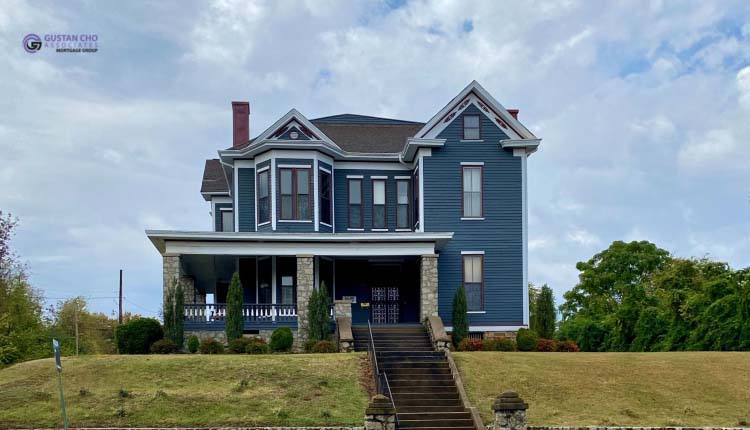This Article Is About Qualifying At Banks Versus Mortgage Companies For Mortgage
When a home buyer thinks of getting pre-qualified for a mortgage loan for a home purchase, the first thought is going to the local bank to qualify for a mortgage. However, the local bank might not be the best choice depending on their credit and financial profile. There are other options to apply for mortgage loans. Some of the choices a mortgage loan borrower has. Credit unions, mortgage bankers, and mortgage brokers all originate and fund home loans. We will cover the advantages and disadvantages of Qualifying At Banks Versus Mortgage Companies For Mortgage.
In this article, we will cover and discuss Qualifying At Banks Versus Mortgage Companies For Mortgage.
Pros And Cons Of Banks Versus Mortgage Companies For Mortgage
One of the main advantages of going to the local bank to apply for your mortgage application is the convenience of having a brick-and-mortar place. It is much easier to just drop off mortgage documents instead of dealing with emails and faxes with mortgage companies that are located some distance or out of state. Banks are licensed in 50 states. However, the disadvantages may outweigh the advantages of Qualifying At Banks Versus Mortgage Companies For Mortgage for many borrowers. Another negative with Qualifying At Banks Versus Mortgage Companies For Mortgage is that Banks have many lender overlays. Closings generally take longer at Banks Versus Mortgage Companies. There are many other financial institutions such as credit unions mortgage bankers, and mortgage brokers mortgage borrowers have options in getting qualified for home loans.
Interest Rates Qualifying At Banks Versus Lenders
Banks, in general, have higher mortgage rates on retail residential mortgage loans. Banks have retail and wholesale divisions. The wholesale division of banks cater to mortgage brokers and they have totally different pricing than the retail division. One of the reasons why banks have higher mortgage rates than other mortgage companies is because of their overhead costs.
Here are examples of higher overhead costs that banks need to cover:
- Higher-end brick and mortar rents
- FDIC Compliance
- Advertising Costs that need layers of approval due to being FDIC
- Banks often instruct the retail bank personnel such as personal bankers and tellers to refer clients inquiring for home loans to their mortgage division
- Walk-ins are referred to retail mortgage loan officers
Licensing At Banks Versus Mortgage Lenders
Banks are exempt from NMLS mortgage licensing requirements, unlike mortgage companies. Banks do not have to disclose all costs like mortgage brokers need to. Banks lobbied politicians and are exempt from licensing. FDIC Banks are exempt from having their loan officers licensed.
Banks can originate and fund home loans in all 50 states. Banks from disclosing yield spread premiums and other costs that are associated with originating mortgage loans. A bank’s mortgage loan originator does not have to license with the state’s department of financial regulation and just needs to be registered with the NMLS.
Again, due to the heavy lobby by bankers in Washington, banks have gotten away with many of the new rules and regulations that were implemented after the real estate and banking collapse of 2008.
Closing At Banks Versus Mortgage Lenders
Another negative of dealing with a mortgage loan originator from a bank is that most loan officers work 9 to 5 and not after hours. Most loan officers from mortgage companies work after hours and weekends. In general, most banks enforce that their loan officers work no more than 40 hours. Loan officers from mortgage companies are commissioned so they may work for more than 40 hours. Banks, in general, have longer turnaround times in processing and underwriting mortgage loans. Many mortgage companies take 30 to 45 days to close loans. Banks may take on average 60 days from the time a borrower submits their signed mortgage application to the time they issue a clear to close.
Overlays At Banks Versus Lenders
For borrowers with bad credit or who have had credit issues, a bank may not be the best choice. To qualify for a 3.5% down payment FHA loan, the minimum credit score required is 580 FICO. Most banks have minimum credit score requirements of 640 FICO even though FHA’s minimum credit score requirement is 580. The higher credit score required by banks is called lender overlays.
Another example of overlays at Banks Versus Mortgage Companies is overlays on collections, DTI, late payments. Many banks will not accept mortgage loan applications by borrowers with late payments in the past 12 months. Most banks may want borrowers to pay off outstanding collections and charge off accounts even though FHA does not require that. HUD does not require minimum credit tradeline requirements. However, most banks may require three credit tradelines seasoned for 24 to 48 months.
Banks may automatically deny borrowers a single late payment after bankruptcy and/or had a foreclosure. Late payments after bankruptcy and/or foreclosure are frowned upon by most lenders but are not automatic disqualification. Most banks have overlays on debt to income ratio at 45% to 50% DTI on FHA loans. HUD allows up to 46.9% front end and 56.9% back end DTI to get an approve/eligible per AUS FINDINGS.
Banks are known to have many overlays for FHA and conventional loans. Borrowers who got denied a mortgage loan from a bank, no worries. Please contact us at Gustan Cho Associates at 800-900-8569 or text us for a faster response. Or email us at gcho@gustancho.com. Gustan Cho Associates has no lender overlays on government and/or conventional loans. We are available 7 days a week, evenings, weekends, and holidays.









